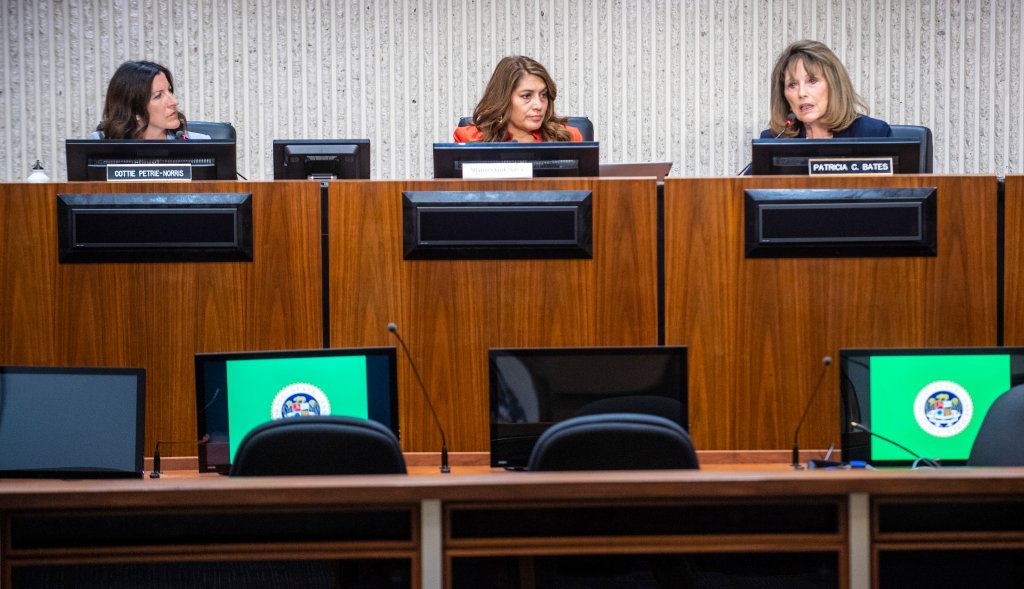Disabled by addiction? Prove it, federal judge says to recovery home suing Costa Mesa

In what could be a major win for the city of Costa Mesa — waging a lonely and expensive battle over sober living homes while other impacted Orange County cities look on — a tentative court ruling holds that disability can’t be used as both sword and shield.
That assertion by a federal court judge could empower other cities to exert greater control over addiction recovery homes — something many cities have been reluctant to do for fear of being sued.
On Monday, Feb. 24, U.S. District Court Judge James V. Selna entertained arguments over his tentative order to grant the city’s request for summary judgment in the federal discrimination lawsuit brought against the city of Costa Mesa by Casa Capri. That would end the case.
Casa Capri charged that the city’s tough new regulations for sober living homes discriminate against the disabled, violating the federal Americans with Disabilities Act and Fair Housing Act.
Costa Mesa’s zoning rules do prohibit sex offenders, violent felons and drug dealers from operating sober homes. They also require 24/7 supervision of clients, mandate a minimum 650-foot separation between facilities, and require a special city permit, which operators say has been virtually impossible to get.
The courts have said that “(p)articipation in a supervised drug rehabilitation program, coupled with non-use, meets the definition of handicapped.” So is a sober living home — an unlicensed, unregulated collection of people simply trying to live substance-free — a drug rehabilitation program?
Exactly who is disabled, and how that’s established, is a crux of the dispute.
Casa Capri argued that the definition of “handicap … has consistently been interpreted by the courts to cover alcoholics and drug addicts.”
Costa Mesa retorted that “(t)here is no per se rule that all individuals in a drug rehabilitation program qualify as disabled or protected.” Casa Capri must prove, on a case-by-case basis, that individuals have “a major life activity substantially impaired by the alleged disability,” and that they are no longer illegally using drugs.
Casa Capri has refused to provide that kind of detail on its clients, saying it would violate privacy laws.
The judge has indicated he is inclined to side with the city.
Congress intended the existence of a disability to be determined in a case-by-case manner, and the Supreme Court has said that those attempting to prove disability may not merely submit evidence of a medical diagnosis, but must prove that their impairment has a major impact on their lives, the tentative ruling noted.
“With no direct or circumstantial evidence to demonstrate a substantial limitation of the potential residents’ major life activities, (plaintiff’s) claim requires the Court to assume that all recovering addicts are handicapped,” the order read, citing a decision in a similar case.
“Such an analysis clearly conflicts with the Supreme Court’s directive to conduct individualized disability assessments and is fatal” to all of the plaintiff’s FHA claims.
The judge will issue his final decision in coming weeks.
Business ‘illegally conducted’
Casa Capri filed suit after it was denied permits to house up to 28 women in eight units. The company argued that the rules violate the Fair Housing Act and that it lost money because it was forced to close.
The city battled those claims on allegations that Casa Capri ran afoul of the law. In an eye-popping “unclean hands” defense filed by Everett Dorey LLP in the fall, Costa Mesa argued that Casa Capri couldn’t recover any damages from the city because its business operations were “illegally conducted in the first place.”
Sworn testimony taken last year alleged that Casa Capri took illegal referral fees, directed sober living clients to an affiliated outpatient treatment program in exchange for 20 percent of billing proceeds and allowed unauthorized people to administer medications.
Testimony also alleged that Casa Capri got kickbacks from a urine-testing operation and participated in insurance fraud by sending urine samples for expensive analysis, whether or not initial tests found drugs were present, according to the city’s filing.
Casa Capri’s owner and others have said they did nothing wrong. Its attorneys did not respond to requests for comment on the tentative ruling Monday.
Seymour B. Everett III, the attorney handling the case for Costa Mesa, said he was pleased with the court’s tentative ruling and hopeful it will be adopted.
Mayor Katrina Foley was pleased as well.
“The Court’s tentative ruling validates Costa Mesa’s decision to fight these bogus lawsuits aimed at exploiting people suffering from addiction and disrupting our community,” Foley said in a statement. “As mayor, I am steadfast in my commitment to protecting all residents, including those exploited by unscrupulous operators of sober living homes.”
Costa Mesa has spent more than $7 million defending its zoning laws and is juggling at least five other federal suits over its sober living laws.
 Pathways Drug Rehabilitation Luxury Addiction Treatment & Detox Center
Pathways Drug Rehabilitation Luxury Addiction Treatment & Detox Center


